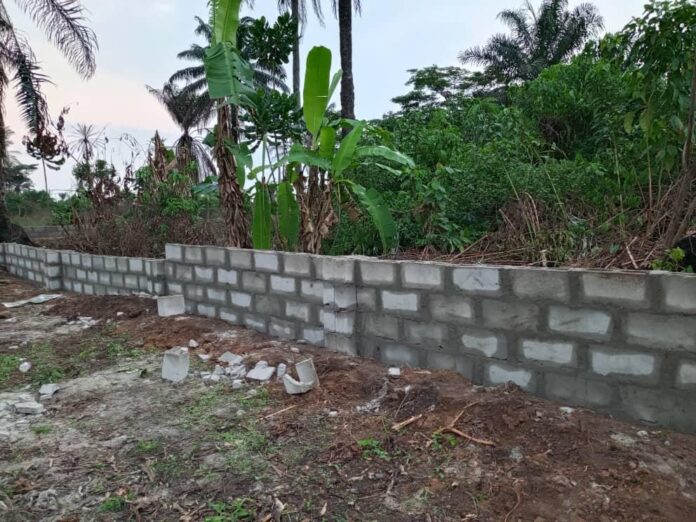Land disputes in Nigeria have become a critical issue for property investors and homeowners alike. With factors ranging from unclear titles and outdated documentation to overlapping traditional and statutory claims, individuals often find themselves caught up in legal entanglements that can drain both finances and peace of mind.
Imagine purchasing a piece of property only to later face a barrage of legal challenges, fraudulent documentation, disputes over boundaries, or even conflicts involving the local community. These disputes can delay development plans, lead to significant financial loss, and put your dream of secure property ownership at constant risk. The uncertainty isn’t just stressful, it can also discourage investment in the Nigerian property market.
By understanding the diverse types of land disputes and implementing proactive measures, you can protect your investments and navigate the complex Nigerian property landscape with confidence. This blog provides an in-depth look at the various land dispute scenarios while offering practical steps for resolution and prevention.
Understanding the Complex Types of Land Disputes in Nigeria
Inheritance and Succession Disputes
Inheritance disputes often occur when the succession of property isn’t clearly defined. Ambiguities in wills or traditional practices can create conflicts among family members.
- Multiple Claimants: When land passes down through generations without proper legal documentation, several family members may stake a claim, leading to prolonged litigation.
- Cultural Nuances: In many cases, customary laws conflict with statutory regulations, complicating inheritance procedures and ownership clarity.
- Resolution: Formalizing wills and obtaining valid legal documentation early on can minimize these conflicts.
Boundary and Overlapping Claims
Boundary disputes emerge from unclear or outdated surveying practices. When physical markers are missing or poorly defined, neighboring parcels can become the subject of legal contention.
- Surveys Gone Wrong: Inaccurate mapping by unregistered surveyors can cause property boundaries to be misinterpreted, leading to overlaps.
- Community Disagreements: Local knowledge of traditional boundaries may differ from recorded official lines, causing friction between community members and formal authorities.
- Resolution: Enlisting certified surveyors and ensuring updated, government-recognized documentation can prevent and resolve these issues.
Fraudulent Transactions and Multiple Sales
A distressing scenario in Nigerian real estate is the fraudulent sale of property, where multiple buyers may end up with conflicting claims.
- Fraud Schemes: Fraudsters may forge documents to sell the same property to multiple parties.
- Legal Complexities: Resolving such cases can require navigating complex legal procedures, often with conflicting evidence and timelines.
- Resolution: Stringent due diligence, including title searches and verification of land documents, is essential before any transaction.
Community and Customary Land Disputes
In many parts of Nigeria, land is held communally, and customary practices often dictate usage rights. Conflicts can arise between community interests and private ownership claims.
- Customary vs. Statutory Rights: Customary land disputes occur when traditional norms conflict with modern legal systems. This can create ambiguity in land tenure and usage rights.
- Community Engagement: Disputes can escalate if local leaders or community members feel excluded from decisions about land allocation.
- Resolution: Mediated community engagement and incorporating local customs within statutory frameworks can help settle such disputes amicably.
Governmental Appropriation and Statutory Issues
Government involvement in land matters sometimes leads to disputes, especially when the state exercises its power over land allocation and use.
- Land Use Act of 1978: This legislation vests all land rights in the state, meaning property owners only hold occupancy rights. Disputes can emerge if governmental actions or policies are perceived as unfair or arbitrary.
- Compensation and Resettlement: When governments acquire land for public projects, issues related to fair compensation and relocation can lead to significant disputes.
- Resolution: Transparent government policies and effective negotiation channels between the state and landowners are crucial.
Unauthorized Land Subdivision and Urban Development Conflicts
Rapid urbanization has spurred unauthorized subdivisions and unapproved developments, further complicating property ownership and land rights.
- Illicit Developments: Developers may subdivide and sell land without securing the necessary approvals, leading to disputes once the property is developed.
- Zoning Conflicts: Discrepancies between local zoning laws and actual land use can trigger legal battles between residents, developers, and local authorities.
- Resolution: Strict adherence to planning guidelines and proper legal vetting of all urban development projects is essential to avoid such conflicts.
Steps to Reclaim Disputed Land
Verify Land Ownership Documents
Begin by conducting a thorough search at the State Land Registry to confirm the authenticity of land titles. Ensure all documents, such as the Certificate of Occupancy, Deed of Assignment, and Survey Plan, are valid and properly registered.
Engage Legal Experts
Consult with property lawyers to assess the dispute’s nature and advise on the best course of action. Legal professionals can help interpret land laws and represent your interests effectively.
Alternative Dispute Resolution (ADR)
Before resorting to litigation, consider ADR methods like mediation or arbitration. These approaches are cost-effective and time-saving, often leading to amicable settlements.
Litigation
If ADR fails, initiate legal proceedings in the appropriate court. Be prepared for a potentially lengthy process, and ensure all evidence is meticulously organized.
Enforce Court Judgments
Upon obtaining a favorable judgment, take necessary steps to enforce it. This may involve obtaining a writ of possession or collaborating with law enforcement agencies to reclaim the property.
Preventive Measures
- Conduct Thorough Due Diligence: Verify the authenticity of land titles and the seller’s claims before purchasing.
- Engage Professionals: Utilize the services of certified surveyors and legal practitioners during transactions.
- Community Engagement: Understand the local customs and involve community leaders when dealing with communal lands.
Partner with Win Realty for Secure Real Estate Investments
Navigating the complexities of land ownership in Nigeria requires expertise and diligence. At Win Realty, we prioritize your peace of mind by ensuring all properties are thoroughly vetted and legally sound. Our team of professionals is dedicated to guiding you through every step of your real estate journey.
Contact Win Realty Real Estate today and take the first step towards a secure, informed, and conflict-free property investment experience in Nigeria
Visit WinRealty or call us at +234 814 900 3508 to speak with one of our real estate experts.

